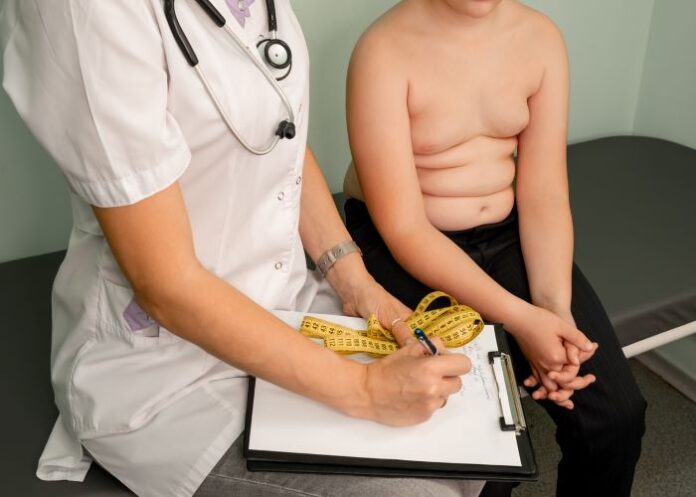The American Academy of Paediatrics (AAP) has released new guidelines for treating childhood obesity that emphasise a need for early and intensive treatment which, for the first time in 15 years, includes not just medication but also surgery.
The guidance comes as childhood obesity rates have continued to rise over the past decade and a half, increasing from 17% to 20%, show data from the US Centres for Disease Control and Prevention (CDC). Since the 1980s, obesity rates have tripled in children and quadrupled in adolescents.
One CDC report found that the rate of weight gain nearly doubled in 2020, compared with pre-pandemic years.
Obesity affects nearly 15m children and teenagers in the US, reports NBC News, and research shows excess weight not only has physical health consequences, including Type 2 diabetes and high blood pressure, but also takes a toll on mental health.
The new guidelines describe obesity as a complex and chronic condition without a simple fix. Intensive behavioural and lifestyle changes should be the first-line approach, but the AAP also includes recommendations for anti-obesity medications and surgery for the first time, in response to a windfall of research and drug approvals in the past few years.
“We now have evidence that obesity therapy is effective. There is treatment, and it’s time to recognise that obesity is a chronic disease,” said Dr Sandra Hassink, medical director of the AAP Institute for Healthy Childhood Weight and co-author of the new guidelines.
Recommendations are for intervening sooner rather than later, the guidelines saying there is no evidence that the old advice of “watching and waiting” or delaying appropriate treatment is beneficial.
For obese children aged six and up – and in some cases even from two to five-years – the first approach should be working with paediatricians and other healthcare providers on changes to behaviour and lifestyle, say the guidelines. This is most effective when it includes at least 26 hours of face-to-face counselling for about a year, something that experts acknowledge can pose a challenge for families.
New treatments
For children 12 and up, one of the major changes in the recommendations is the inclusion of anti-obesity drugs and weight-loss surgery alongside lifestyle changes.
Research has increasingly shown that weight is determined by more than just diet and level of physical activity; genetics and hormones can also play a role in how a person’s body uses and stores energy. This understanding has been the basis for the development of new drugs.
Four drugs are now approved for obesity treatment in adolescents starting at age 12: Orlistat, Saxenda, Qsymia and Wegovy – and one, phentermine, for teens 16 and older. Another drug, called setmelanotide (brand name Imcivree), has been approved for kids six and older who have Barde-Biedl syndrome, a genetic disease that causes obesity.
Wegovy, which surged in popularity last year as a weight-loss drug for adults, was approved by the Food and Drug Administration (FDA) in late December for ages 12 and up, trials showing that a weekly injection of the drug, with healthy exercise and eating habits, could help children 12 and older cut their body mass index by about 16%, compared with just more than 0.5% for those on a placebo.
However, the new drugs aren’t available to everyone and are expensive.
The guidelines also recommend that teens 13 and up with severe obesity consider discussing weight-loss surgery, which evidence has shown can be a safe and effective treatment with lasting results.
Research has showed that having bariatric surgery sooner can reverse health issues like type 2 diabetes and high blood pressure, which is why surgery should be considered for paediatric patients.
A holistic approach
Hassink, of the AAP, emphasised that medications and surgery are not first-line treatments and should be considered only in special circumstances when lifestyle changes prove ineffective for individual patients.
She also acknowledged that these lifestyle changes can be really hard to adopt, especially for overworked and low-income parents.
The guidelines recommend a holistic approach to obesity treatment: looking at the entire life of a child, considering not only physical habits like diet and activity levels but also mental health, environment and any social inequities faced by the child.
Tangible change will require significant changes that are often outside a family’s control.
peds_2022060641
See more from MedicalBrief archives:
New US guidelines recommend weight loss drugs for obesity
TikTok turns diabetes drug into popular diet pill
Diabetes drug helps obese patients shed weight – US study
Soaring UK obesity rate boosts paediatric diabetes by 41%
Obesity contributes to up to half of new diabetes cases annually in the US

